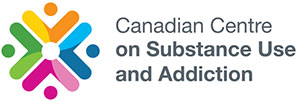Position: Director, Indigenous Partnerships and Strategies
Reports to: Chief Operating Officer
The Canadian Centre on Substance Use and Addiction (CCSA) changes lives by bringing people and knowledge together to reduce the harms of alcohol and other drugs on society. We partner with public, private, and non-governmental organizations (NGOs) to improve the health and safety of people living in Canada. An NGO with a national focus, CCSA’s vision is for a healthier Canadian society where evidence transforms approaches to substance use.
CCSA acknowledges that the First Peoples are the holders of Traditional Knowledge. We respect the power of the Indigenous ways of knowing and of Traditional Knowledge and commit to learning about and incorporating this knowledge into our work with proper guidance.
Reporting to the Chief Operating Officer, the Director, Indigenous Partnerships and Strategies, is responsible for developing and nurturing reciprocal relationships with First Nations, Métis and Inuit communities that will move CCSA closer to its goal of meaningful reconciliation.
The Director, Indigenous Partnerships and Strategies, will build CCSA’s internal capacity for initiating and growing these reciprocal relations, including the creation and implementation of a strategic plan that includes significant steps toward reconciliation. The Director, Indigenous Partnerships and Strategies, will also build internal capacity to respect and understand Traditional Knowledge and the principals and governance frameworks that protect it, such as the Ownership Control Access and Possession (OCAP) principles, and the Ownership Control Access and Stewardship (OCAS) principles.
The Director, Indigenous Partnerships and Strategies, will provide strategic advice and guidance to CCSA’s senior leadership team as well as its Board of Directors.
Responsibilities
- Develops and nurtures reciprocal relationships with First Nations, Métis and Inuit communities and organizations, including but not limited to the Thunderbird Partnership Foundation, Assembly of First Nations, Métis National Council and Inuit Tapiriit Kanatami
- Works with the CCSA senior leadership team and staff to create and implement a strategic plan for developing a reconciliation framework respectful of the United Nations Declaration of the Rights of Indigenous Rights (UNDRIP) Act, Truth and Reconciliation Commission of Canada’s Calls to Action, Missing and Murder Indigenous Women and Girls Call for Justice, OCAP principles, OCAS principles, and other relevant data and research governance principles
- Builds CCSA’s internal capacity to cultivate reciprocal relationships with First Nations, Métis and Inuit communities and organizations, and to create meaningful reconciliation initiatives
- Works with the Quality, Risk and Performance Measurement division to establish and track measures in assessing CCSA’s progress toward reconciliation
- Advises senior leadership on key emerging issues, themes, evidence and approaches specific to the priorities of CCSA in the context of First Nations, Métis and Inuit health and wellness
- Supports Executive Office in engaging and reporting to CCSA’s Board of Directors and its committees as required
- Ensures that CCSA’s work abides by UNDRIP, Truth and Reconciliation Commission of Canada’s Calls to Action, Missing and Murder Indigenous Women and Girls Call for Justice, OCAP principles, OCAS principles and other relevant data and research governance principles
- Works with the CCSA senior leadership team and staff to ensure CCSA carries out its work in an environment that recognizes the effects of colonization and is mindful of the historical and current circumstances that have led to significant substance use issues facing Indigenous people
- Promotes the need for unique approaches to address substance use issues in Indigenous communities
Qualifications
- Master’s degree in a relevant discipline (e.g., science, arts and humanities, Indigenous health and wellness, health administration, adult education) or a bachelor’s degree and equivalent experience engaging with First Nations, Métis or Inuit governments, communities and organizations
- Understanding of First Nations, Métis and Inuit health and wellness, including relevant health and wellness delivery systems, traditional healing, holistic health, spirituality
- Understanding of First Nations, Métis and Inuit national organizations and governance structures and processes
- Commitment to the Truth and Reconciliation Commission of Canada’s Calls to Action and understanding of the continuing effects of colonization
- Understanding of Indigenous relations in historical and legal contexts
- Experience negotiating and facilitating discussions, leading to consensus with diverse groups (e.g., Indigenous communities and organizations, senior managers, health professionals, the public, healthcare managers and other decision influencers, private industry)
- Demonstrated experience in strategic positioning and implementing national plans that have demonstrated uptake and impact
- Experience presenting to diverse audiences, including a range of partners, stakeholders and decision makers
- Strong analytical skills; process and results-oriented
- Enthusiastic and high-energy team player with a passion for engaging partners
- Strong focus on critical and analytical thinking and strategic problem resolution
- Excellent communication skills
Assets
- Proficiency in one or more Indigenous languages
- Bilingual English and French
Consideration of candidates will begin immediately and will continue until the position is filled. Interested candidates should submit a résumé and covering letter by email to hr@ccsa.ca. We thank all respondents; however, only those candidates selected for an interview will be contacted.
Preference will be given to Indigenous applicants who demonstrate a strong connection to community with a commitment to advancing Indigenous health priorities.
